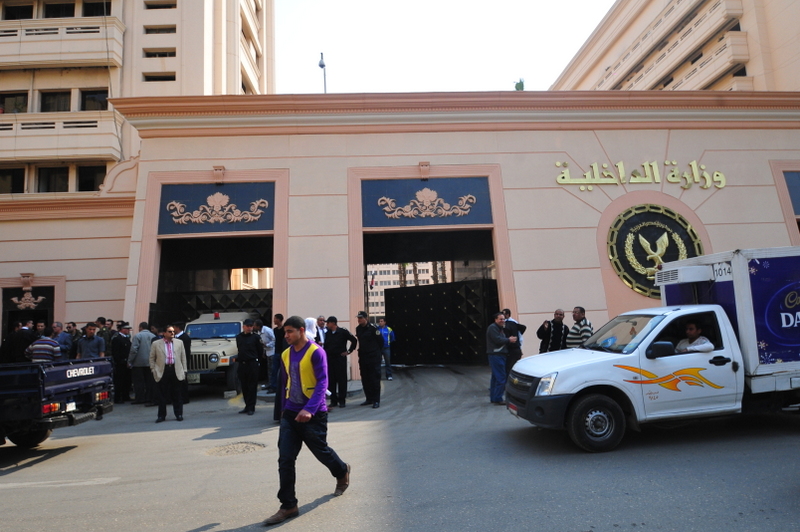CAIRO: Moody s rated the credit future outlook of Egyptian banks as “Stable in a report released Wednesday, even though risks are on the downside, it said.
Satiated with excess liquidity, banks operating in Egypt are expected to survive the ongoing global financial tempest that has devoured big names.
However, two financial institutions argue that a challenging operating environment and high inflation rates eclipse Egyptian banks.
The operating environment for Egyptian banks remains challenging, characterized by low per-capita GDP, high unemployment and soaring consumer price inflation, said Moody s Investors Service in its latest “Banking System Outlook report on Egypt.
Based on government figures, GDP per capita reached $2,202 in fiscal year 2007/08, while unemployment rates hit 8.37 percent in the fourth quarter of the same year. Consumer price inflation currently stands at 21.5 percent.
The international ratings agency added that although the global financial crisis has so far had a limited impact on the Egyptian economy, it could pose challenges for the country s banks.
“Such a scenario could, in particular, delay completion of certain aspects of the banking sector reform program, including repayment of all public sector non-performing loans, Moody’s said in a statement released Wednesday.
The Egyptian banking system, Moody’s pointed out, continues to be dominated by large state-owned banks. The Moody s-rated state-owned banks have high market shares and solid funding franchises, but still generally display weak financial fundamentals, primarily because of the high non-performing loans, said Constantinos Kypreos, a Moody s vice president and author of the report.
“Implementation of their financial and operational restructuring is improving financials, and risk management.but the shedding of their bureaucratic habits will take some time, he added.
While international banks have been thrust into the center of a financial turmoil that drowned some 13 institutions, Moody’s deems Egyptian banking sector more resilient and better positioned to withstand global pressures.
Cairo-based regional investment bank Beltone Financial said in a report released on Tuesday the very low loan-to deposit ratio in Egypt has left a legacy of the banking sector being conservative and cautious with lending.
“In Egypt, the effects of the global recession are mitigated by the generally low levels of personal and corporate debt, said Angus Blair, head of research at Beltone.
Unlike Gulf banks, Egyptian banks are not subject to any funding pressure, read Beltone’s detailed 150-page a review of the region entitled “The Arab Stock Markets Review.
Egyptian banks are experiencing excess liquidity, with the loan-to-deposit ratio at 54 percent by the end of June. “We used to say that Egypt has [unused] excess liquidity in the system. Now, we are saying thank God we have it because it protected us from the global financial crisis, explained Radwa El Sweify, senior banking analyst at Beltone.
The investment bank said it was less concerned about big banks, as opposed to smaller ones, because of their stronger pricing power, larger capital bases and, thus, higher single obligor limit.
Beltone added these large banks mostly deal with affluent upper and upper-middle class segments of the population, who are less likely to get affected by high inflation; and therefore, higher interest rates would not largely affect their decisions to apply for credit.
The central bank has raised its key overnight interest rates six times this year to combat inflation, which recently fell to 21.5 percent in urban areas in the year to September, from 23.6 percent in the year to August.
The bank has so far hiked rates by a cumulative 2.75 percent this year.
Overnight deposit rate currently stands at 11.5 percent and its overnight lending rate at 13.5 percent.
The government has blamed inflation mainly on high international food prices, which have begun to decline as a result of the global financial crisis and its ripple effects on growth.
On the other hand, the bank expects soaring inflation rates to negatively impact individuals’ disposable income and their savings pattern and thus might hold back retail lending growth.
“The higher the inflation rates, the less capable customers are to save money or pay back loans. Therefore, we forecast a slowdown in retail lending, El Sweify clarified.
On the back of higher interest rates, Beltone raised the risk free rate for Egyptian banks to 13 percent, up from 11 percent. The investment bank also hiked banks discount rate to 18-20 percent from 16.5 percent.
The bank’s Monetary Policy Committee met on Thursday afternoon to decide on its corridor interest rates. Economists are at odds whether the bank would raise rates for the seventh time this year to contain inflation.
“While we initially believed that it might be early for the central bank to cut rates on Thursday and expected the cut later on December 25 – as domestic inflationary pressures remain relatively high – recent statements imply a cut is possibly imminent, said Reham ElDesoki, senior economist at Beltone.
“The central bank’s proactive behavior leads us now to believe that the likelihood of cutting rates today is relatively high.to help mitigate the potential negative impact of the global economic slowdown on Egypt’s growth, she added.
Meanwhile, investment bank EFG-Hermes expects the central bank to leave policy rates unchanged because inflation rates were still elevated. It forecasts the bank will cut rates in December or in early 2009.
“Inflation pressures are clearly receding, but declines in global commodity prices have been slow to pass through to consumers, EFG-Hermes said on Thursday. “While prices may have started to fall at the wholesale level, anecdotal evidence suggests that declining prices have not yet reached the end-consumer.

